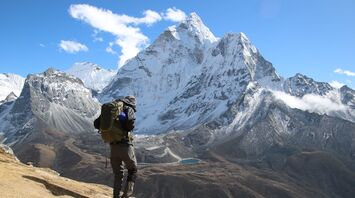Toilet Issue: The Nepalese authorities are implementing new rules for climbers on Everest

The development of mountaineering has an unexpected problematic side. It affects human life while climbing the world's largest peaks.
In particular, it has recently become known that tourists climbing the famous Mount Everest will be required to clean up their excrement. This is due to the fact that thousands of climbers leave behind mountains of garbage, including excrement, while climbing to the top, writes BusinessInsider.
The Nepalese authorities have decided that climbers who ascend this legendary peak will be required to clean up their excrement and return it to the base camp for further disposal. In particular, locals are concerned about the smell emanating from the mountains. Recently, human waste has become a serious problem on Everest due to extreme temperatures that prevent it from fully decomposing.
So, according to the new rules, climbers who want to climb Everest will have to purchase special waste collection bags at the base camp. They have to return the bags upon their return, and the special bags contain chemicals and powders that harden the excrement and reduce its odor.
Despite the fact that climbers on Everest spend most of their time in the base camp, where temporary toilets are installed, once they start climbing the mountain, they are forced to relieve themselves in the open air. Some experts note that Everest has recently gained a sad reputation as an "open toilet."
Uncontrolled littering on Everest adds to the problem. After all, in this windy area, human waste remains visible, which creates serious problems with hygiene and ecosystem preservation.
From now on, special bags for collecting excrement will be purchased to ensure cleanliness on the mountain. The bags will be issued to climbers and support staff before the climb, and upon their return, these used bags will be checked by climbers.
International mountaineering organizations hope that the pilot project will be extended to other mountain peaks after Everest. The Nepalese authorities also promise to closely monitor compliance with this rule to maintain cleanliness and preserve the unique nature of Everest for future generations.



















